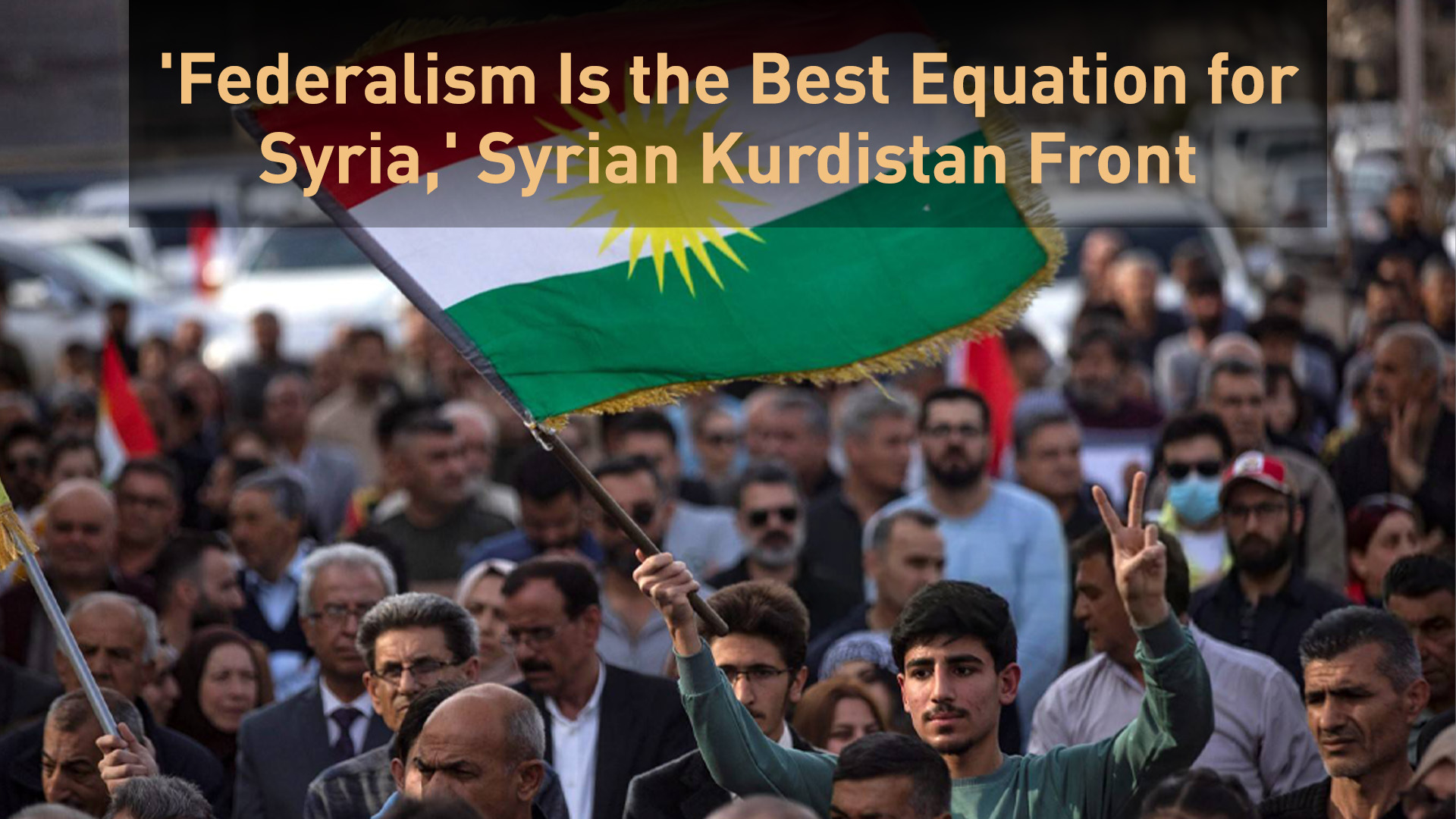'Federalism Is the Best Equation for Syria,' Syrian Kurdistan Front
“This government is not the result of a national agreement and cannot gain any legitimacy until it includes representatives of Syria's various components, including Kurds,” the statement by Syrian Kurdistan Front asserted.

By Kamaran Aziz
ERBIL (Kurdistan24) — In a strongly worded statement issued on Sunday, the Syrian Kurdistan Front rejected the newly announced transitional government headed by Ahmad al-Sharaa, declaring it neither the product of a national consensus nor a body that represents Syria’s ethnic and political mosaic.
The Front accused the new administration of reinforcing a centralized, exclusionary model of governance under an Islamic guise, rather than building an inclusive and democratic future.
The statement, released a day after al-Sharaa unveiled a 23-member cabinet, reflects deep Kurdish dissatisfaction with what many see as a missed opportunity to forge a government of national partnership following the fall of Bashar al-Assad’s regime in December 2024.
“The Syrian people hoped that after the fall of the regime, this phase would become the beginning of ending oppression and building a multi-faceted democratic state,” the Front stated. “But what happened during the formation of the interim government, the so-called national dialogue, and now this transitional cabinet confirms that the current administration—with an Islamic facade—is moving toward new forms of repression.”
Syria’s transitional President, Ahmad al-Sharaa unveiled a new government on Saturday evening, inaugurating a sweeping cabinet formation that includes former rebel leaders, academic experts, civil society activists, and technocrats. While heralded by some as a fresh chapter for a post-Assad Syria, the absence of a prime minister and the prominent appointment of figures closely aligned with al-Sharaa has drawn mixed reactions both domestically and abroad.
In a nationally broadcast ceremony from the presidential palace, al-Sharaa—who assumed power on December 8, 2024, following the collapse of Bashar al-Assad’s government—emphasized themes of unity, national reconstruction, and institutional integrity.
One of the most notable appointments was that of Mohammad Abdulrahman Terko, a Kurdish legal scholar from Afrin now based in Damascus, who took the oath as Minister of Education. His inclusion is viewed as a symbolic gesture toward Syria’s Kurdish community, often marginalized under previous governments.
According to the Front, the transitional government lacks legitimacy because it fails to include meaningful representation from Syria’s diverse ethnic and religious communities, including Kurds. It warned that appointing individuals to ministerial positions does not equate to genuine representation, especially in the absence of a transparent and inclusive democratic process.
“This government is not the result of a national agreement and cannot gain any legitimacy until it includes representatives of Syria's various components, including Kurds,” the statement asserted.
Although one Kurdish figure, legal scholar Mohammad Abdulrahman Terko, was appointed as Minister of Education, Kurdish political organizations—including the Syrian Democratic Forces (SDF) and the Autonomous Administration in northeast Syria—were excluded from the transitional framework. This omission was particularly striking given that earlier in March, Al-Sharaa and SDF commander Mazloum Abdi signed a breakthrough truce agreement in Damascus, laying the groundwork for merging the Kurdish-led force into the Syrian army and establishing a national ceasefire.
The Syrian Kurdistan Front stressed that a legitimate interim government must be the result of a comprehensive national dialogue that embraces pluralism, democracy, and fair representation. “No individual can represent a people without a genuine democratic process,” the statement declared. “Syria’s future cannot be built on marginalization, but through a national dialogue that strengthens the foundations of justice and equality.”
Reiterating its long-standing position, the Front described federalism as the only viable political structure capable of safeguarding the rights of Syria’s many communities. “Today’s federal system in Syria is the best equation that can represent all components and protect everyone's rights,” it said.
The formation of the transitional cabinet, while viewed by some international actors as a potential step toward stability, is increasingly being challenged by marginalized groups who see it as yet another iteration of exclusionary rule. With no prime minister appointed and key ministries held by figures close to Al-Sharaa, questions continue to swirl over the inclusiveness, legitimacy, and sustainability of this new governing body.
As the Syrian political landscape shifts in the wake of Assad’s downfall, the exclusion of critical stakeholders such as the Kurds could risk undermining any fragile consensus that remains. The Syrian Kurdistan Front’s statement stands as a pointed reminder that any durable political solution must be rooted in equity, representation, and a commitment to the rights of all Syrians—not merely a reshuffling of power among former factions.
Whether the transitional government will open space for broader participation or continue to face resistance from key communities remains to be seen. But for now, Kurdish leaders are making clear that without real dialogue and recognition, there can be no lasting peace—or legitimacy.